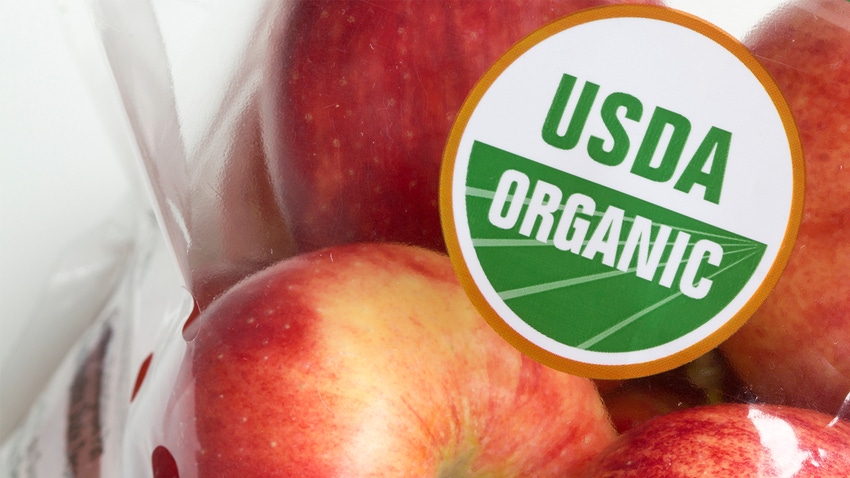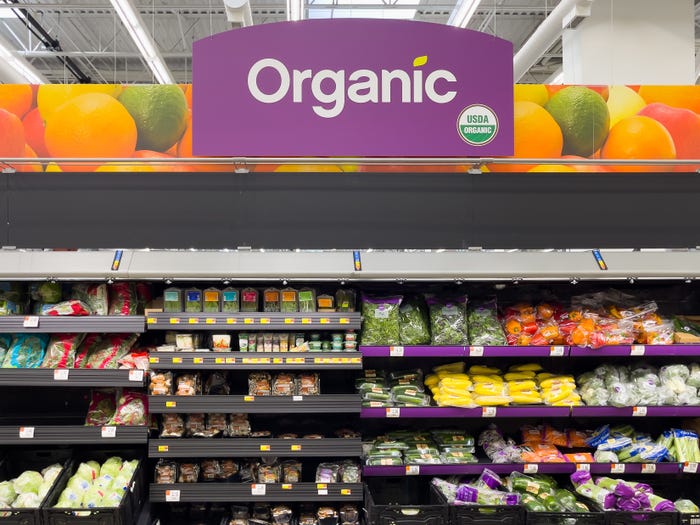USDA organic regulations mandate authentic organic ingredients in marketed products
The Organic Trade Association’s VP of Operations Stephanie Jerger explains how to effectively verify organic ingredients so that organic products are legal and maintain the integrity and quality organic shoppers expect.

At a Glance
- Products labeled as organic must contain organic ingredients, according to regulations in USDA’s National Organic Program.
- CPG brands face difficulties in authenticating organic ingredients, primarily due to a lack of resources and information.
- Third-party organic certifications provide an additional layer of assurance, ensuring that ingredients are genuinely organic.
Products that are marketed as organic or contain the U.S. Department of Agriculture (USDA) organic seal are required to contain organic ingredients in accordance with the claim, according to federal regulations under USDA’s National Organic Program. That means organic ingredients contained in organic-labeled products must be authentic.
“It is important for not only the integrity of the organic seal, but the integrity of the product,” Stephanie Jerger, VP of operations at the Organic Trade Association (OTA), said. “But [it’s also important] because there’s a legal entity that has a penalty for claiming to have an organic ingredient and it not be an organic ingredient.”
Beyond that, products that are labeled as organic but don’t contain organic ingredients can “taint the organic brand for everyone,” she said.
Food & Beverage Insider: What are the primary challenges CPG brands face when authenticating organic ingredients?
Jerger: Knowing what to ask for. I think the organic community has not done a great job of giving resources to handlers, which is what CPG brands would fall under — people who handle ingredients to make a product. I don’t think we’ve put out enough information [to help them] understand really quickly and easily how to get those products authenticated.
Another challenge they have is that a lot of the ingredients come from an international source or outside of the country, which is not a problem because certified organic from USDA is international, so that brand is everywhere and, even in another country, they are still held to the same standards that we are here in the U.S. So, it’s really easy to authenticate, but … there’s just not enough information for handlers about how to authenticate. And that’s a burden of the industry.

The Toidi / Shutterstock.com
Food & Beverage Insider: Let’s talk about third-party organic certifications. Can CPG brands trust that ingredients sourced from USDA organic-certified farms, livestock producers or ingredient suppliers are truly organic? Why or why not?
Jerger: Absolutely. I like to say [organic agriculture] is blockchain before there was blockchain. The organic seal, certified USDA organic label, comes with knowing that I can trace whatever this product was, whatever these ingredients are, back to their original source. That is the strength of the seal. That seal is the only thing that’s binding everybody to that same standard.
The third-party verification is what makes [organic certification] even safer because it’s not the USDA doing it, it’s not the company; It’s someone completely different coming to verify both sides have agreed to that standard and that they’re meeting the standard.
Food & Beverage Insider: How can CPG brands verify a supplier is USDA organic-certified?
Jerger: Ask for their certification. [It’s as] simple as that. Let’s just say I’m making a tea. Literally all I have to do when I put in an order is say, ‘Can you send me a copy of your certification?’ If they don’t give it to you, … you can ask them, ‘Who are you certified with?’ Because then I can call the certifier and say, ‘Send me their certificate.’ If they don’t want to send you the certificate and they don’t want to [disclose their certifier], I would be cautious. I wouldn’t really want to buy from that person.
The National Organic Program under USDA has what we call OID, an organic integrity database. This is a public database. You can pull up this database, type in the name of that company and it’ll tell you if they have an organic certification.
Food & Beverage Insider: What other advice do you have for CPG brands to help them effectively authenticate organic ingredients?
Jerger: I would say, just ask a few more questions about it. The organic process is so transparent and so traceable — that is its value. So anytime you cannot get a direct answer about an organic product or a direct line about where it comes from, be wary of it. That will help us keep the fraud and integrity in check for these kinds of products.
Read more about:
SupplySide partner updatesAbout the Author(s)
You May Also Like






